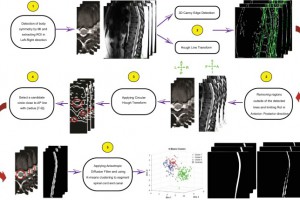Depression and Negative Mental States Affect Heart Health
The heart and mind are strongly connected, with depression, anxiety and chronic stress all increasing the risk for heart and brain health complications, according to two preliminary studies to be presented at the American Heart Association’s Scientific Sessions 2023.
Emerging research underscores the profound connection between mental health and heart disease, with depression and anxiety hastening the onset of cardiovascular risk factors.
Findings from two preliminary studies suggest that psychological conditions not only distress the mind but also have tangible effects on physical health, potentially leading to heart attacks or strokes.
These studies demonstrate the acceleration of risk factors like high blood pressure and diabetes in individuals with depression and anxiety and highlight the importance of early and frequent cardiovascular screenings for those with mental health issues.
The meeting, to be held Nov. 11-13, in Philadelphia, is a premier global exchange of the latest scientific advancements, research and evidence-based clinical practice updates in cardiovascular science.
Mental health conditions, including depression, anxiety and stress are known to increase the risks for poor heart health, according to the American Heart Association and in two new studies, researchers measured how much one’s mental state affects heart health.
“There are clear associations between psychological health and cardiovascular disease risk. These studies add to a growing body of data we have on how negative psychological health can increase the risk of heart and brain disease,” said Glenn N. Levine, M.D., FAHA, writing committee chair of the American Heart Associations’ 2021 Psychological Health, Well-Being, and the Mind-Heart-Body Connection scientific statement.
Depression and anxiety accelerate the rate of gain of cardiovascular risk factors: mechanism leading to increased risk of cardiac events (MDP274)
The first study examined the mechanism by which the mental state affects heart health. Researchers found that anxiety and depression sped the development of new cardiovascular disease risk factors.
“While it is known that depression and anxiety increase the risk of cardiovascular disease, such as heart attack and stroke, the mechanism underlying this is not completely known,” said lead study author Giovanni Civieri, M.D., a research fellow at the Cardiovascular Imaging Research Center at Massachusetts General Hospital and Harvard Medical School, both in Boston.
“In our study, we identified a mechanism that appears to largely account for the link between these psychological factors and cardiovascular disease.”
Civieri and colleagues studied data from adults enrolled in the Mass General Brigham Biobank in Boston with no previous heart events. The time required to develop a new cardiovascular risk factors was measured over 10 years of follow-up.
Researchers found:
38% of all participants developed a new cardiovascular risk factor, such as high blood pressure, high cholesterol or Type 2 diabetes during the follow-up.
Participants previously diagnosed with anxiety or depression developed a new risk factor on average six months earlier than those who did not have depression or anxiety.
Depression and anxiety increased the risk for a major cardiovascular event, such as a heart attack or stroke, by about 35%.
About 40% of the link between depression and/or anxiety and major heart and stroke events were explained by the accelerated development of cardiovascular disease risk factors.
People with a higher genetic predisposition to stress developed the first cardiovascular risk factor at a younger age (on average 1.5 years earlier than those without the genetic marker).
“Developing cardiovascular risk factors more than six months earlier, over an average of five years is a lot,” Civieri said. “The fact that genetic analysis supported the clinical findings was intriguing and provided further confidence in our results.”
Researchers suggest that depression and anxiety might induce brain changes that trigger downstream effects in the body, such as increased inflammation and fat deposition.
The findings emphasize the importance of screening for cardiovascular risk factors among people with depression and anxiety.
“This study illustrates that health care professionals should be aware that negative psychological health — things like depression or anxiety — not only affect patient’s mental state of being, but also can impact their physical health and the risk for heart disease.
“So, these are not benign conditions,” said Levine, master clinician and professor of medicine at Baylor College of Medicine, chief of the cardiology section at the Michael E. DeBakey VA Medical Center, both in Houston.
“These are things we want to aggressively refer people to mental health professionals.”
Civieri also encouraged people with depression or anxiety undergo more frequent screening of their cardiovascular risk factors such as high blood pressure, high cholesterol and Type 2 diabetes.
“Although we did not investigate this aspect, it is reasonable to assume that treating depression and anxiety may reduce the accelerated development of cardiovascular risk factors,” he said.
Study background:
The analysis was conducted using data on 71,262 adults, (average age 49, 45% men) and data were collected from December 2010 to December 2020.
16% of the study group were taking medications for depression or anxiety; however, statistical adjustment for such medications did not significantly impact results, Civieri explained.
A genetic marker of stress sensitivity (polygenic risk score for neuroticism) was assessed for subjects who provided genetic data.
The observational study design and the possible misclassification of diagnostic codes for depression and anxiety are limitations to the study.
Associations of cumulative perceived stress with cardiovascular risk factors and outcomes: findings from the Dallas Heart Study (MDP100)
In a second, unrelated study, researchers explored the effects of cumulative stress on heart and brain health by examining responses to questionnaires completed by adults in the Dallas Heart Study who did not have existing cardiovascular disease.
“This unique study explored the relationship between our new cumulative stress score and its subcomponents on cardiovascular risk factors as an attempt to understand this relationship further,” said lead author Ijeoma Eleazu, M.D., a cardiology fellow at the University of Texas Southwestern Medical Center in Dallas.
Even after adjusting for risk factors such as high blood pressure, high cholesterol, smoking and Type 2 diabetes, as well as income and education, researchers found that higher cumulative stress was:
associated with a 22% increased risk of atherosclerosis, in which plaque builds up in the arteries reducing adequate blood flow;
associated with a 20% increased risk of overall cardiovascular disease; including coronary artery disease and heart failure;
higher among women, people aged 18-45 and individuals with lower income and education levels, as well as among individuals who self-identified as Black or Hispanic adults.
Study background and details:
- Data evaluated was for 2,685 adults who did not have existing cardiovascular disease and participated in the Dallas Heart Study phase 2 (2007-2009), a multiethnic population-based group based in Dallas.
- The participants’ average age was 48 years; 55% were women; 49% were Black adults; and 15% of participants were Hispanic/Latino adults.
- Participants were followed for an average of 12.4 years, and cardiovascular events and deaths were judged by a panel of cardiovascular specialists.
Limitations of the study include there may have been unknown conflicting factors that were not considered and that the cumulative score is new and has not been fully validated, Eleazu explained.
Reference





Related Posts